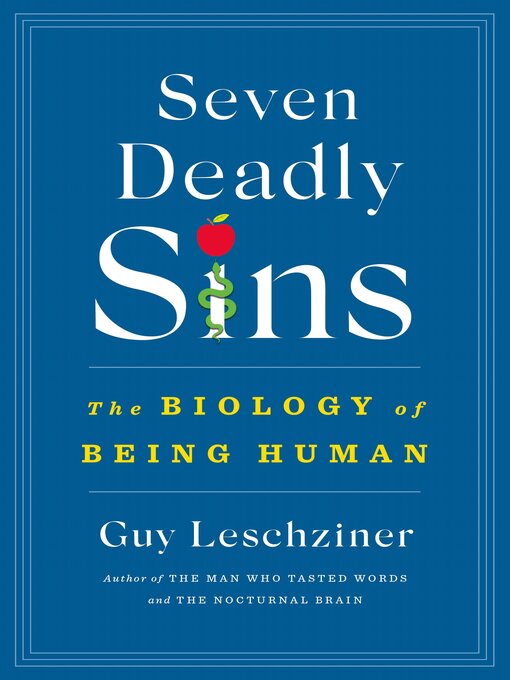A FINANCIAL TIMES BEST BOOK OF THE YEAR
Seven Deadly Sins will explore the underlying nature of the seven deadly sins, their neuroscientific and psychological basis, and their origin in our genes.
Gluttony. Greed. Sloth. Pride. Envy. Lust. Anger. These are The Seven Deadly Sins, the vices of humankind that define immorality. But do these sins really represent moral failings, or are they simply important and useful biological functions that humans need to survive? Instead of being acts of immorality, are they really just a result of how our bodies, our psyches, and our brains in particular, are wired? In Seven Deadly Sins: The Biology of Being Human, Guy Leschziner, a professor of neurology, dares to turn much of what society thinks of as morality on its head and to ask these controversial questions.
Leschziner takes readers on an exploration of the Seven Deadly Sins as he looks at their neuroscientific and psychological bases, their origin in our genes, and, crucially, how certain medical disorders may give rise to them. He introduces us to patients whose physical and psychological conditions have given rise to behaviours that have for centuries been labelled as "sin" and how these behaviours might actually be evolutionary imperatives that preserve the tribe and ensure the wellbeing of our societies. In Seven Deadly Sins, a book certain to cause debate and raise controversy, Guy Leschziner, a writer who has explored the mysteries of our sleeping brains and the odd crossed wires of our five senses, asks whether these traits truly represent sin, or simply reflect our intrinsic drive to survive and thrive.
- Available now
- New eBook additions
- New teen additions
- Most popular
- Try something different
- Deaf Culture and ASL
- Adult New Readers
- See all
- Hot and Trending Listens
- New audiobook additions
- New kids additions
- New teen additions
- Most popular
- Try something different
- Available now
- Quick listens
- Read by a Celeb
- Audiobooks for the Whole Family
- Best for Short Drives
- 2023 Audies Award Nominees
- See all
- Home & Garden
- Most popular
- Crafts
- Lifestyle
- Health & Fitness
- Cooking & Food
- Fashion
- Try something different
- Celebrity
- Tech & Gaming
- Cars & Motorcycles
- Family & Parenting
- Sports
- See all


